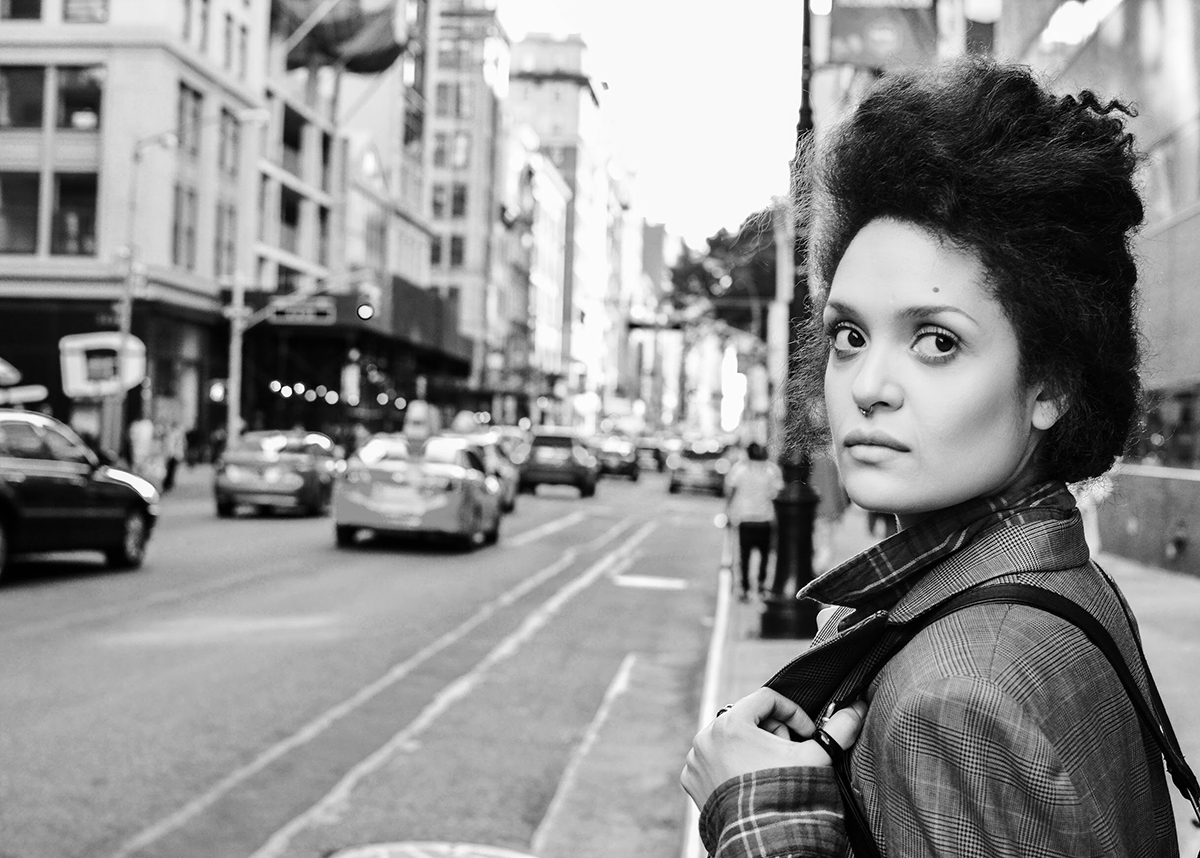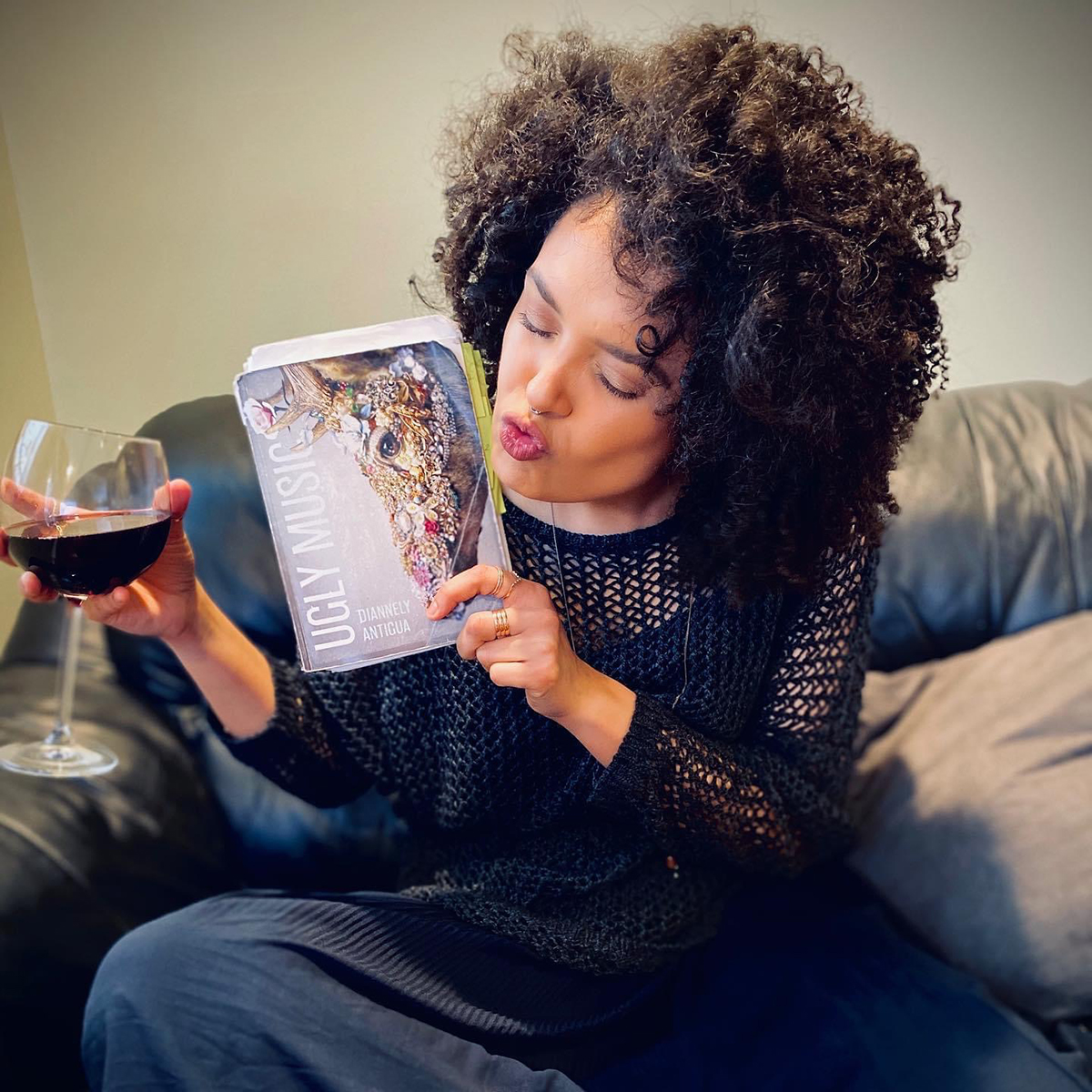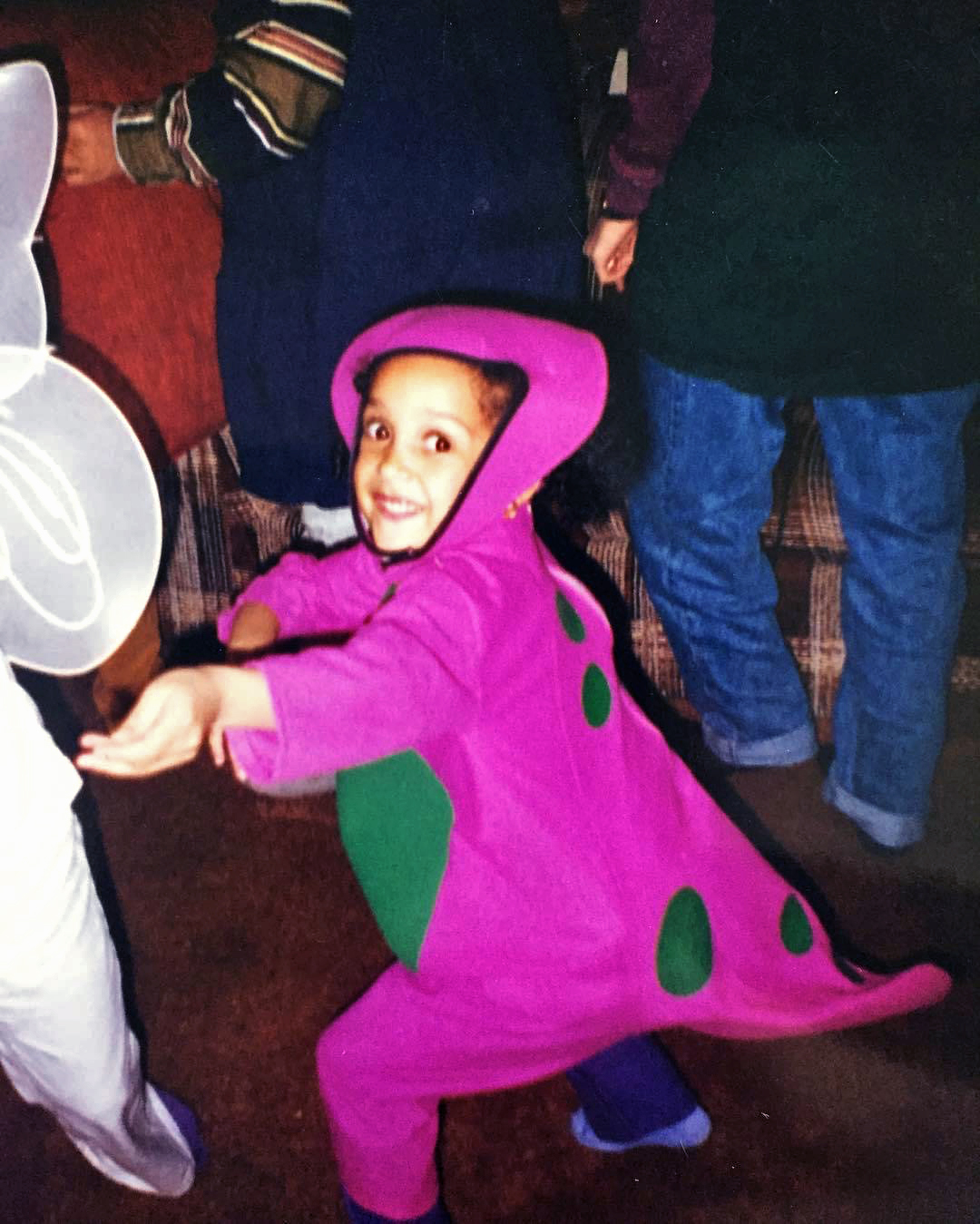In Conversation with Diannely Antigua
Billy Lezra

Diannely Antigua is a Dominican American poet and educator, born and raised in Massachusetts. Her debut collection Ugly Music (YesYes Books, 2019) was the winner of the Pamet River Prize and a 2020 Whiting Award. She received her BA in English from the University of Massachusetts Lowell where she won the Jack Kerouac Creative Writing Scholarship; and received her MFA at NYU where she was awarded a Global Research Initiative Fellowship to Florence, Italy. She is the recipient of additional fellowships from CantoMundo, Community of Writers, and the Fine Arts Work Center Summer Program. Her work has been nominated for both the Pushcart Prize and Best of the Net. Her poems can be found in Washington Square Review, Bennington Review, The Adroit Journal, and elsewhere. Her heart is in Brooklyn.
During your reading at Wednesday Night Poetry, you said something that struck a chord with me, which was: “My being alive is a protest even if it is a protest against something inside of me that I am struggling with.”
Yes. I have been having a difficult time figuring out my place as a poet, and what my responsibility is, especially as a poet of color that identifies as Afro-Latina. I’ve been trying to figure out how to lend my voice, whether it needs to be heard or not, and whether what I have to say is important.
I was talking to a friend who is a poet and an activist, and he told me: “existence is resistance.” There are different lanes to resisting; I’m just occupying a different lane than other people. Maybe my job, my resistance, isn’t at the front lines. Maybe I am not meant to be at a protest, but there are other things I can do.
My friend also reminded me that I am a woman with invisible disabilities. I suffer from chronic body pain, from a major depressive disorder, and general anxiety. So, a lot of the time, what I am battling is within myself. The resistance is against something within me that doesn’t want me to be alive. I think that voice inside me is a product of many things, including systemic racism. My continuing to live is a form of resistance. It is the lane I am occupying right now. As I continue to heal, I hope to have more room and opportunity to do more, but right now it is very important that I take care of myself and treat myself with the kindness that I deserve and the kindness that this world has not given me.
What does this kindness look like?
It has a lot of facets. One of the most important ones is continuing therapy even throughout the pandemic. Albeit virtually, I am still keeping up with my mental health and holding myself accountable. I have been in therapy for 8 years; it is not something new. My mental health journey has been a very long and difficult one. Kindness just looks like showing up for myself, even when I don’t want to. Sometimes there are days when I don’t want to do therapy but I show up. I want to continue to show myself that I matter, that I am important: that is how I learn to trust myself. The parts of me that need healing will relinquish their burdened roles. Being kind to myself is remembering how far I have come. I want to make sure I celebrate the work I have done.

Diannely Antigua celebrating the Whiting Award announcement at home during the pandemic.
I read that you said you don’t feel removed from the speakers in Ugly Music, but rather, “unblended.”
I would consider myself unblended from the speakers because I feel as though I am speaking on their behalf. Although I am still using the pronoun “I”, they are parts of me that have started to heal at this point. I think healing is always underway, but there is a clear difference between the speaker in one poem from another. I don’t necessarily feel as if it is the same speaker. But they are all a part of me.
The word unblended comes specifically from the type of therapy that I do. It is parts work, or the Internal Family Systems model, where you speak on behalf of your parts. So rather than saying: “I am angry because so and so said something to me,” I would say: “there is a part of me that is angry because so and so said something to me.” I am still letting those parts speak, but it is not coming directly from them. It is one step removed, or unblended from the part that is angry. And my true self can speak on their behalf.
Does this mean that there is a speaker that is “integrated” or “true”?
At least in Ugly Music, the poems that are narrative are very much true self. Those poems come from a place of story-telling, as opposed to some of the diary entry poems that come from a stream of consciousness. There is a difference in how the speaker portrays the particular situation or emotion. The poems “Misconception” or “Picked” are true self. I own those poems as the speaker.
[fusion_youtube id=”https://youtu.be/tHjnLI9k5ok” alignment=”” width=”” height=”” autoplay=”false” api_params=”” hide_on_mobile=”small-visibility,medium-visibility,large-visibility” class=”” css_id=”” /]
Diannely Antigua reads “Misconception,” “Diary Entry #4: Huzzle” and “I’m Almost 30” at City of Asylum in Pittsburgh for Latinx and Proud! on January 22, 2020.
What is your relationship between writing and spirituality?
I think those are very interconnected. I grew up in a very strict religious system that infiltrated every part of my life. I ended up leaving that community of people, which was very painful because I had devoted my entire life to that system. So poetry was a way for me to find a new religion. I like to joke that it is my new cult. Poetry has given me a lot of strength, and an avenue to express myself and connect with others. Something key in spirituality is connecting. This doesn’t have to mean connecting with a higher power; it can be connecting with something deeper within yourself, or connecting with that deeper part of other people. That is what spirituality is to me. Poetry is helping me reach others, and they are reaching me, even if they aren’t in the same room.
You said: “I believe that the unhealed heart can still find love, can still love in return with a fervor like no other.”
We are often told that we need to be whole before we can find love and before we can truly love another person. I believe this to an extent. I don’t think that we are ever going to be at a point in our lives when we can look in the mirror and say “I am whole,” completely or, “I feel whole,” completely. Part of the journey of life is understanding that we were whole the whole time.
Still, where does it leave me when people say “you have to love yourself completely before you love someone else” especially as someone who has survived a lot of trauma? Where does that leave me in relation to love? Should I never hold hope because trauma follows me everywhere, because it is something I cannot really escape, something I am still trying to learn to cope with? Should I say “I can’t have love” until I no longer think about trauma? If that were the case I would never find love. I want to hold hope for myself and for others, that, even if we feel broken, we can still find love in ourselves and within other people. Love is being able to connect with someone else who also realizes that they, too, are broken. I don’t think two whole people find each other and it is perfect and wonderful and they live happily ever after. I think we have so much growing to do, even when we do find someone. I am holding that hope for myself.
Where do you go to find this hope?
Oh boy. It is very scarce. I don’t have a lot of it. Some of it comes from therapy. My therapist is a very compassionate person and knows all of the work I have done. She holds onto hope for me and lets me borrow it from time to time. Some of it also comes from holding hope for other people. I am not the only person in the world with mental illness. I have a lot of friends and loved ones with mental illness. I want to hold onto hope that they can find love, that they can find a partner that will cherish them for all of their brokenness.
I love what you just said about borrowing hope. Almost as if you can take some from a few and give a bit to others.
Oh yeah, I think so. A hope-exchange.
What is your writing process like?
There are some writers who go to the page every day at the same time. They have a routine that really works for them. I, at the moment, do not have a routine. Sometimes I show up and something happens, and other times I show up and nothing really happens. I just continue to pop in and see if a poem will emerge. If it doesn’t, I’ll just try again another day. At some point a poem will happen, it just takes time, so I try not to get too worked up if I can’t write at that particular moment. I do write to music sometimes, especially if I feel that the poem I am working on relates to a particular song or a particular style of music.
In the poem, “Misconception” I mentioned earlier, the song I refer to is a song we used to sing in church when I was younger. My mother would sing it around the house all the time. It felt very natural to play the song while writing the poem. Other times I am in a room that is completely silent. I think it really depends, and everything is kind of poem by poem. Even if I am not writing about a particular song or a particular genre of music, I find that musical terminology comes into my poetry very easily because I grew up playing flute and singing in church.
How do you know when a poem is done?
I don’t know. I have poems that are published in literary magazines, and I’m like, “eh, I’d totally change this, I’d take this comma out, put a period here…” I don’t think they are ever truly finished. I would change a lot about the poems that are in Ugly Music, and it is just because I’ve changed. I can’t expect that something I wrote in the past is going to suit me in the present. I imagine that a poem is never finished because we are always changing, and I think that is okay.
You said: “I imagine that after death our bodies keep chanting something.” This seems connected to what you just said about poetry.
Yes. I think about death all the time, not even necessarily in a bad way. I think about those who were close to me who have died, and how their memories live on. I especially think about my grandmother, who I write about in Ugly Music. I can still hear her. I can hear her songs. I can hear her voice and her stories. We do chant after death because we live in the memories of those we have loved that are still here. That is a wonderful way to exist even if our bodies aren’t walking the earth anymore. Someone can still recall something that we said, or a song we used to sing. That is a beautiful way to still remain even after we die.
When you say you think about death often, what do you mean?
It appears in a lot of my poetry. Obviously it stems from my mental illness. That is something I have had to grapple with. As I mentioned earlier, I am resisting something within myself that doesn’t want me to be alive. I do think about death in that way, sadly quite often. Again, I am still resisting it. That is hard work: waking up and fighting with a part of yourself every day. It is important work and I am going to continue to do it because I am worth living.
What brings you joy?
I love coffee. I love dancing. It brings me so much joy to dance, whether it is with people or just by myself. Being able to move my body and not really care what it looks like, and moving it to music—it is a magical, magical thing. I like very simple things. I love sweeping the floors. It brings me some weird satisfaction. I like freshly sharpened pencils and organized books. My nieces and nephews bring me immense joy. I think that they are the most beautiful little humans I have ever seen in my life. Today my sister sent a picture of my youngest niece trying avocados for the first time. In the picture, she looked like she hated it, so I’m not sure if it brought her joy, but it definitely brought me joy to see her face experiencing that. I loved it.

Diannely dancing dressed up as Barney when she was 5.
To learn more about Diannely and her work, visit her website.
In Conversation with Diannely Antigua
Billy Lezra

Diannely Antigua is a Dominican American poet and educator, born and raised in Massachusetts. Her debut collection Ugly Music (YesYes Books, 2019) was the winner of the Pamet River Prize and a 2020 Whiting Award. She received her BA in English from the University of Massachusetts Lowell where she won the Jack Kerouac Creative Writing Scholarship; and received her MFA at NYU where she was awarded a Global Research Initiative Fellowship to Florence, Italy. She is the recipient of additional fellowships from CantoMundo, Community of Writers, and the Fine Arts Work Center Summer Program. Her work has been nominated for both the Pushcart Prize and Best of the Net. Her poems can be found in Washington Square Review, Bennington Review, The Adroit Journal, and elsewhere. Her heart is in Brooklyn.
During your reading at Wednesday Night Poetry, you said something that struck a chord with me, which was: “My being alive is a protest even if it is a protest against something inside of me that I am struggling with.”
Yes. I have been having a difficult time figuring out my place as a poet, and what my responsibility is, especially as a poet of color that identifies as Afro-Latina. I’ve been trying to figure out how to lend my voice, whether it needs to be heard or not, and whether what I have to say is important.
I was talking to a friend who is a poet and an activist, and he told me: “existence is resistance.” There are different lanes to resisting; I’m just occupying a different lane than other people. Maybe my job, my resistance, isn’t at the front lines. Maybe I am not meant to be at a protest, but there are other things I can do.
My friend also reminded me that I am a woman with invisible disabilities. I suffer from chronic body pain, from a major depressive disorder, and general anxiety. So, a lot of the time, what I am battling is within myself. The resistance is against something within me that doesn’t want me to be alive. I think that voice inside me is a product of many things, including systemic racism. My continuing to live is a form of resistance. It is the lane I am occupying right now. As I continue to heal, I hope to have more room and opportunity to do more, but right now it is very important that I take care of myself and treat myself with the kindness that I deserve and the kindness that this world has not given me.
What does this kindness look like?
It has a lot of facets. One of the most important ones is continuing therapy even throughout the pandemic. Albeit virtually, I am still keeping up with my mental health and holding myself accountable. I have been in therapy for 8 years; it is not something new. My mental health journey has been a very long and difficult one. Kindness just looks like showing up for myself, even when I don’t want to. Sometimes there are days when I don’t want to do therapy but I show up. I want to continue to show myself that I matter, that I am important: that is how I learn to trust myself. The parts of me that need healing will relinquish their burdened roles. Being kind to myself is remembering how far I have come. I want to make sure I celebrate the work I have done.

Diannely Antigua celebrating the Whiting Award announcement at home during the pandemic.
I read that you said you don’t feel removed from the speakers in Ugly Music, but rather, “unblended.”
I would consider myself unblended from the speakers because I feel as though I am speaking on their behalf. Although I am still using the pronoun “I”, they are parts of me that have started to heal at this point. I think healing is always underway, but there is a clear difference between the speaker in one poem from another. I don’t necessarily feel as if it is the same speaker. But they are all a part of me.
The word unblended comes specifically from the type of therapy that I do. It is parts work, or the Internal Family Systems model, where you speak on behalf of your parts. So rather than saying: “I am angry because so and so said something to me,” I would say: “there is a part of me that is angry because so and so said something to me.” I am still letting those parts speak, but it is not coming directly from them. It is one step removed, or unblended from the part that is angry. And my true self can speak on their behalf.
Does this mean that there is a speaker that is “integrated” or “true”?
At least in Ugly Music, the poems that are narrative are very much true self. Those poems come from a place of story-telling, as opposed to some of the diary entry poems that come from a stream of consciousness. There is a difference in how the speaker portrays the particular situation or emotion. The poems “Misconception” or “Picked” are true self. I own those poems as the speaker.
[fusion_youtube id=”https://youtu.be/tHjnLI9k5ok” alignment=”” width=”” height=”” autoplay=”false” api_params=”” hide_on_mobile=”small-visibility,medium-visibility,large-visibility” class=”” css_id=”” /]
Diannely Antigua reads “Misconception,” “Diary Entry #4: Huzzle” and “I’m Almost 30” at City of Asylum in Pittsburgh for Latinx and Proud! on January 22, 2020.
What is your relationship between writing and spirituality?
I think those are very interconnected. I grew up in a very strict religious system that infiltrated every part of my life. I ended up leaving that community of people, which was very painful because I had devoted my entire life to that system. So poetry was a way for me to find a new religion. I like to joke that it is my new cult. Poetry has given me a lot of strength, and an avenue to express myself and connect with others. Something key in spirituality is connecting. This doesn’t have to mean connecting with a higher power; it can be connecting with something deeper within yourself, or connecting with that deeper part of other people. That is what spirituality is to me. Poetry is helping me reach others, and they are reaching me, even if they aren’t in the same room.
You said: “I believe that the unhealed heart can still find love, can still love in return with a fervor like no other.”
We are often told that we need to be whole before we can find love and before we can truly love another person. I believe this to an extent. I don’t think that we are ever going to be at a point in our lives when we can look in the mirror and say “I am whole,” completely or, “I feel whole,” completely. Part of the journey of life is understanding that we were whole the whole time.
Still, where does it leave me when people say “you have to love yourself completely before you love someone else” especially as someone who has survived a lot of trauma? Where does that leave me in relation to love? Should I never hold hope because trauma follows me everywhere, because it is something I cannot really escape, something I am still trying to learn to cope with? Should I say “I can’t have love” until I no longer think about trauma? If that were the case I would never find love. I want to hold hope for myself and for others, that, even if we feel broken, we can still find love in ourselves and within other people. Love is being able to connect with someone else who also realizes that they, too, are broken. I don’t think two whole people find each other and it is perfect and wonderful and they live happily ever after. I think we have so much growing to do, even when we do find someone. I am holding that hope for myself.
Where do you go to find this hope?
Oh boy. It is very scarce. I don’t have a lot of it. Some of it comes from therapy. My therapist is a very compassionate person and knows all of the work I have done. She holds onto hope for me and lets me borrow it from time to time. Some of it also comes from holding hope for other people. I am not the only person in the world with mental illness. I have a lot of friends and loved ones with mental illness. I want to hold onto hope that they can find love, that they can find a partner that will cherish them for all of their brokenness.
I love what you just said about borrowing hope. Almost as if you can take some from a few and give a bit to others.
Oh yeah, I think so. A hope-exchange.
What is your writing process like?
There are some writers who go to the page every day at the same time. They have a routine that really works for them. I, at the moment, do not have a routine. Sometimes I show up and something happens, and other times I show up and nothing really happens. I just continue to pop in and see if a poem will emerge. If it doesn’t, I’ll just try again another day. At some point a poem will happen, it just takes time, so I try not to get too worked up if I can’t write at that particular moment. I do write to music sometimes, especially if I feel that the poem I am working on relates to a particular song or a particular style of music.
In the poem, “Misconception” I mentioned earlier, the song I refer to is a song we used to sing in church when I was younger. My mother would sing it around the house all the time. It felt very natural to play the song while writing the poem. Other times I am in a room that is completely silent. I think it really depends, and everything is kind of poem by poem. Even if I am not writing about a particular song or a particular genre of music, I find that musical terminology comes into my poetry very easily because I grew up playing flute and singing in church.
How do you know when a poem is done?
I don’t know. I have poems that are published in literary magazines, and I’m like, “eh, I’d totally change this, I’d take this comma out, put a period here…” I don’t think they are ever truly finished. I would change a lot about the poems that are in Ugly Music, and it is just because I’ve changed. I can’t expect that something I wrote in the past is going to suit me in the present. I imagine that a poem is never finished because we are always changing, and I think that is okay.
You said: “I imagine that after death our bodies keep chanting something.” This seems connected to what you just said about poetry.
Yes. I think about death all the time, not even necessarily in a bad way. I think about those who were close to me who have died, and how their memories live on. I especially think about my grandmother, who I write about in Ugly Music. I can still hear her. I can hear her songs. I can hear her voice and her stories. We do chant after death because we live in the memories of those we have loved that are still here. That is a wonderful way to exist even if our bodies aren’t walking the earth anymore. Someone can still recall something that we said, or a song we used to sing. That is a beautiful way to still remain even after we die.
When you say you think about death often, what do you mean?
It appears in a lot of my poetry. Obviously it stems from my mental illness. That is something I have had to grapple with. As I mentioned earlier, I am resisting something within myself that doesn’t want me to be alive. I do think about death in that way, sadly quite often. Again, I am still resisting it. That is hard work: waking up and fighting with a part of yourself every day. It is important work and I am going to continue to do it because I am worth living.
What brings you joy?
I love coffee. I love dancing. It brings me so much joy to dance, whether it is with people or just by myself. Being able to move my body and not really care what it looks like, and moving it to music—it is a magical, magical thing. I like very simple things. I love sweeping the floors. It brings me some weird satisfaction. I like freshly sharpened pencils and organized books. My nieces and nephews bring me immense joy. I think that they are the most beautiful little humans I have ever seen in my life. Today my sister sent a picture of my youngest niece trying avocados for the first time. In the picture, she looked like she hated it, so I’m not sure if it brought her joy, but it definitely brought me joy to see her face experiencing that. I loved it.

Diannely dancing dressed up as Barney when she was 5.

